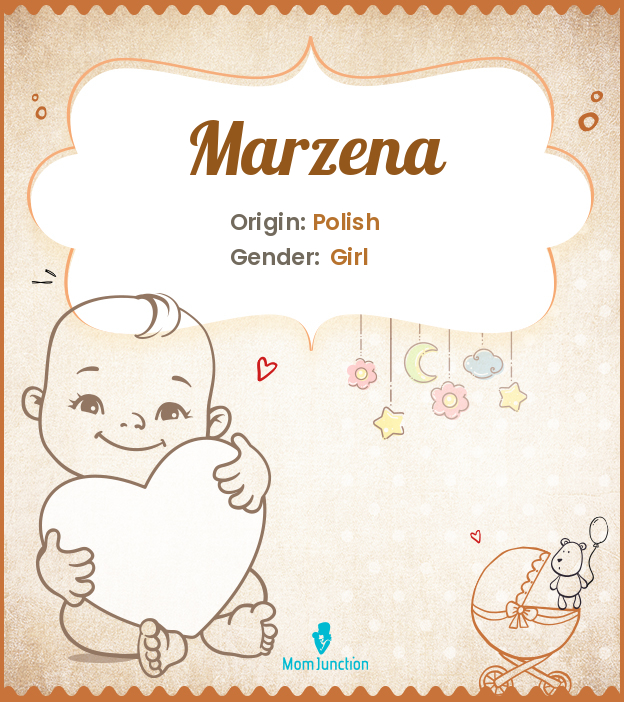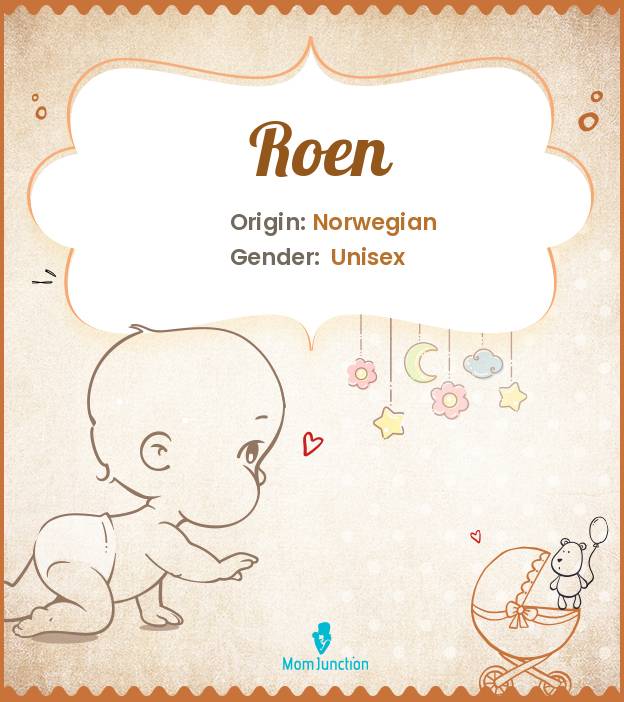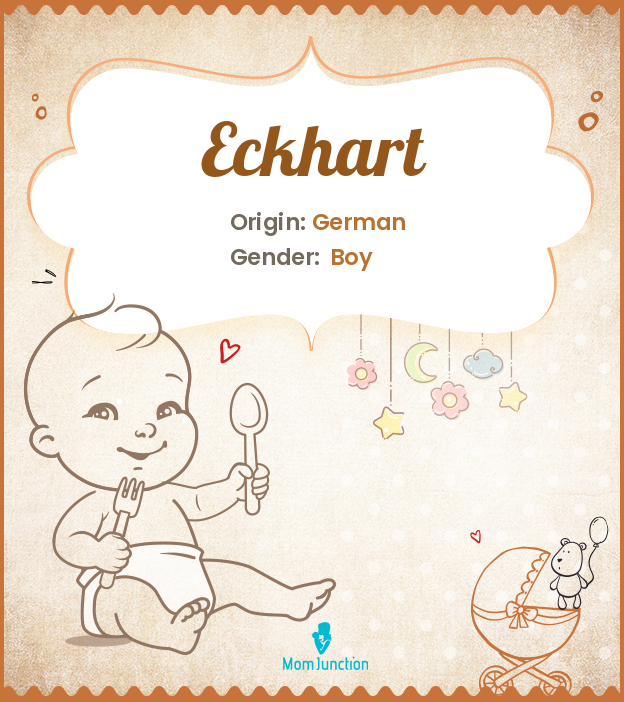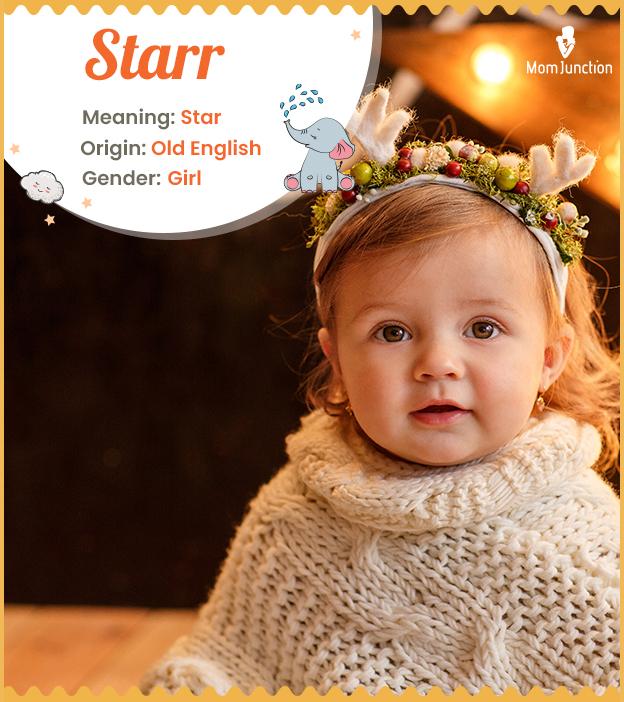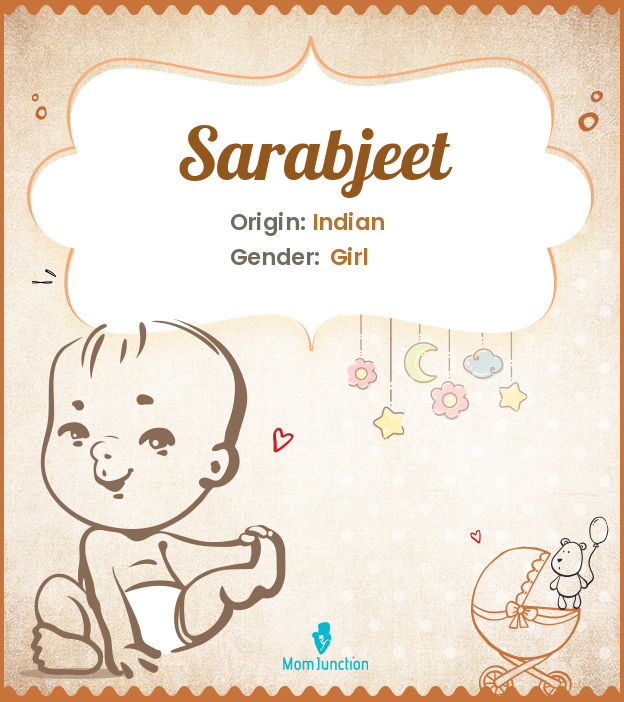
Image: Shutterstock
Hungarians, also known as Magyars, are the indigenous people of Hungary (Magyarorszag). Their official language is Hungarian—the most widely spoken Uralic language in the world. Most Hungarian surnames or last names come from this language. Hungarian family names generally precede given names and mostly come from the father’s side of the family (1). These surnames reflect the nation’s cultural heritage and offer insights into one’s family lineage, geographic origins, and occupation. While most surnames or family names are derived from professions, others belong to those of non-Magyar ethnic groups. During the Austria-Hungary empire, people of non-Hungarian descent, including the Germans, Slovaks, and Jews, adopted Hungarian surnames. While some Germans translated their names into Hungarian, some modified their original German surnames into Hungarian forms. This post takes you through a list of the most common Hungarian surnames or last names and their meanings.
100+ Popular Hungarian Surnames Or Last Names
Hungarian surnames represent the country’s cultural background, delving into its professions, geography, and values. From its most common family names, like Nagy and Toth, to ones that are associated with famous historical figures, like Bathory and Biro, this list covers the most popular Hungarian last names. Read on to discover the meanings behind the surnames below.
1. Acs
Acs is an occupational surname for a ‘carpenter.’ The surname is also commonly used in Slovakia.
2. Almassy
It is derived from the Hungarian element ‘alma,’ meaning ‘apple.’ It refers to a person who sells or harvests apples. Almassy is also a habitational surname referring to places named Almas in Hungary (2).
 Trivia
Trivia3. Arany
Arany means ‘golden.’ Hungarian poet and author Janos Arany was a popular bearer of this surname (3).
4. Bako
The common Hungarian last name means ‘executioner’ or ‘axeman.’ It is an occupational surname. It can also be derived the personal name Bak, meaning ‘billy goat.’
 Trivia
Trivia5. Barta
It is a shortened form of the personal name, Bartolomaeus, which is from the Latin name Bartholomew, meaning ‘furrow.’ Barta is a Hungarian, Slovak, and Czech surname.
6. Barany
Barany means ‘lamb’ in Hungarian. It is also an occupational name for a shepherd and also used as a nickname for someone who resembles a lamb.
7. Bathory
Bathory means ‘good hero’ or ‘brave.’ It is a habitational name indicating someone from Bator, a village in Hungary. This last name, originally spelled Bathori, was of a Hungarian noble family who historically controlled the estate. Stephen Bathory, a former King of Poland and Grand Duke of Lithuania, was a famous bearer of this surname (4).
8. Becskei
Becskei refers to a person from Becske town in Hungary. The town of Beckse may be derived from the name Benedek, the Hungarian version of Benedict, meaning ‘blessed.’
9. Biro
Biro means ‘judge’ in Hungarian. It is an occupational name that can be used for a judge, or even his servants and relatives. A popular namesake is Laszlo Biro, a Hungarian inventor who popularized ballpoint pens (5).
10. Bokor
This Hungarian surname is derived from the word ‘bokor’ meaning ‘bush.’ It is a topographic name for someone who lived near bushes. Bokor is also used in Slovakia, Croatia, and Romania.
11. Boros
It is derived from the Hungarian element ‘bor’ meaning ‘wine.’ The surname indicates someone who makes or sells wine.
 Trivia
Trivia12. Cinege
It refers to ‘titmouse bird’ in Hungarian, and was primarily a nickname. As a surname, it is mostly concentrated in north-eastern Hungary.
13. Cseh
This habitational or descriptive surname refers to ‘Czech’ in Hungarian. It was used to indicate those of Czech-ancestry or ethnicity.
14. Csany
The Hungarian surname Csany refers to a noble family in the Kingdom of Hungary and first appeared in the early 14th century. A famous bearer of the name was politician and Hungarian Revolution martyr Laszlo Csany (6).
15. Csonka
It is a nickname, originated from the Hungarian element Csonka meaning ‘mutilated.’ Csonka is pronounced as ZAWNG-kuh.
16. Dienes
The Hungarian alternative of Dennis derived from Dionysus, the Greek god of wine. The variants are Dienes, Denes, and Gyenes. Dienes is pronounced as Di-en.
 Trivia
Trivia17. Dobos
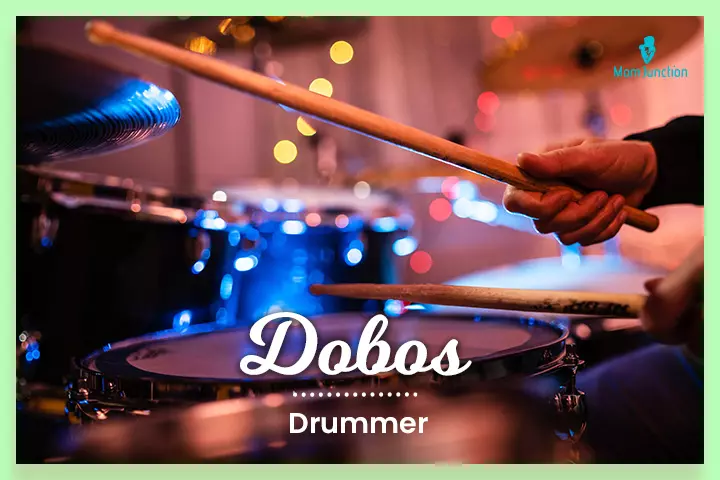
Dobos means ‘drummer’ in Hungarian. Some of the popular people with this surname are Attila Dobos, the Hungarian footballer, and Gabor Dobos, the Hungarian sprinter.
18. Dunai
It is derived from the word Duna, the Hungarian name for the River Danube. It is a topographical and habitational name referring to those who resided by the River Danube.
19. Eperjesi
Eperjesi is a toponymic Hungarian surname. It means ‘one from Eperjes,’ referring to the province of Presov in present-day Slovakia.
20. Erdos
Erdos is derived from the Hungarian element ‘erdo,’ meaning ‘forest.’ It is an occupational name referring to ‘a forester.’ Renowned Hungarian mathematician Paul Erdos was a bearer of this surname (7).
21. Farago
It is taken from the Hungarian word ‘farag,’ meaning ‘cut or carve.’ This is an occupational name for a woodcutter or a stonecutter.
22. Fazekas
Fazekas is an occupational surname for a ‘potter’ or ‘maker of clay pottery’ in Hungarian. It comes from the word ‘fazek,’ meaning ‘pot.’
23. Fejer
A variant of Feher, it was originally a nickname for a person with a pale complexion or white hair. Feher is a Hungarian word for ‘white.’
24. Fejes
The surname is taken from the Hungarian element ‘fej,’ meaning ‘head.’ It was initially used as a nickname for a stubborn person or someone with a large head.
25. Fekete
Fekete means ‘black’ in Hungarian, and is originally a nickname for those with dark hair or dark complexion.
26. Ferenci
Ferenci is a patronymic surname and is derived from the name Ferenc. Ferenc comes from ‘Franciscus,’ the ethnic name used to describe ‘Frank,’ later known as a ‘Frenchman.’
27. Fodor
Fodor means ‘curly or wavy’ in Hungarian, and indicates someone with curly or wavy hair. Besides Hungary, this surname is found in Romania, Serbia, Slovenia, Slovakia, and Croatia.
28. Gabor
Gabor is originally a personal name and is a Hungarian form of Gabriel, meaning ‘God is my strength.’
29. Garai
This surname has multiple origins. In Hungarian, it is a habitational surname derived from a place called Gara. It means ‘peak or height’ in Basque, and is also an Indian Bengali surname.
30. Gorog
Gorog means ‘Greek’ in Hungarian, and is a common surname in Hungary. It refers to anyone who has Greek ancestry or ethnicity.
31. Gulyas
Gulyas means ‘herdsman or tender of cows.’ It is an occupational name referring to the keeper of a herd. Fun fact, the Hungarian national stew dish, Goulash, is derived from the word Gulyas.
32. Hajos

Hajos means ‘boatman or sailor’ and is likely to be an occupational name in Hungary. It derives from the word ‘hajo,’ meaning ‘boat.’
33. Halasz
It is an occupational name for a fisherman in Hungary. Halasz is derived from the element ‘hal,’ meaning ‘fish’ with an occupational suffix ‘-asz.’
34. Halmi
It is a habitational name for someone who lives near or on the hill. It is taken from the Hungarian element ‘halom,’ meaning ‘mound or small hill.’
35. Horvath
The second most common surname in Hungary, and the most common surname in Slovakia, borne by the descendants of Hungarians. It refers to Horvat, meaning a person from Croatia.
36. Huszar
This Hungarian last name is derived from the Old Croatian word ‘husar,’ meaning ‘robber or plunderer.’ It is the status name for a hussar, a member of the cavalry regiment. Karoly Huszar was a former Prime Minister of Hungary (8).
37. Illes
It is taken from the old ecclesiastical name and a variant for Elias or Elijah. The root name has Biblical origins and means ‘Yahweh is my God.’
38. Jo
It is a Hungarian word for ‘good’ and was initially used as a nickname. Jo has its origin in Hebrew, meaning ‘he shall increase’ and a feminine version of Joseph.
39. Juhasz
It is the occupational name for ‘shepherd’ in Hungarian. It is derived from the elements ‘juh,’ meaning ‘sheep’ and occupational suffix ‘-asz.’
40. Kadar
Kadar means ‘cooper or barrel maker’ in Hungarian. It is an occupational name and also has Slavic origin.
41. Kalmar
Kalmar is an occupational name for ‘shopkeeper or merchant’. It is also one of the popular German last names and comes from the word ‘kram,’ meaning ‘trading post tent.’
42. Kardos
Kardos is an occupational surname indicating sword makers, soldiers, or one with a pugnacious nature. This surname has Turkish origins in the word ‘kard,’ meaning ‘sword.’
43. Katona
Katona means ‘soldier’ in Hungarian and is likely to be an occupational surname. The word originated in Byzantine Greek as ‘katouna,’ and it referred to a ‘tent’ or ‘camp.’
44. Kerekes
It is derived from the Hungarian word ‘kerek,’ meaning ‘wheel.’ This is an occupational name for a maker of wheels or a ‘wheelwright.’
45. Kiss
This common surname is derived from the Hungarian element ‘kis,’ meaning ‘small.’ It is usually used as a nickname for a person of small stature. Some popular bearers of this surname are Tamas Pal Kiss, the Hungarian racing driver, and Zoltan Kiss, the Hungarian football player.
46. Koszorus
It is an occupational name for someone who makes garlands, and is derived from Hungarian ‘koszoru,’ meaning ‘garland or wreath.’
47. Kurt
It is a Hungarian word for ‘horn’ and originates in an ancient Magyar clan name. In the Turkish language, Kurt also means ‘gray wolf.’
48. Lakatos
Lakatos means ‘locksmith’ in Hungarian and is of Romani origin. The surname is used by the Gypsy or Romani community in Hungary and also by those of Slovak and Romanian roots.
49. Lantos
Lantos is from the Hungarian word ‘lant,’ meaning ‘lute.’ It refers to ‘minstrel, bard or lutist.’
50. Lengyel
It is an ethnic name for a Pole and is also used to refer to Polish speakers and those who inhabited Poland. It is believed that the name was adopted by Jewish people in Hungary.
51. Lukacs
This Hungarian last name is derived from the given name Lucas, which comes from the Latin word ‘lux,’ meaning ‘light.’ The surname has several spelling variations, like Lukac, Lukach, Lucaci, and Lukacic.
52. Magyar
Magyar means ‘Hungarian,’ and is most often given to those who live in the rural regions of Hungary. It is an ethnic name that comes from the Megyer tribe, which was one of the most powerful clans during the late Roman period (9).
53. Meggyesfalvi
This is a habitational name for someone living in the Hungarian village, Meggyesfalva. It means ‘cherry village,’ derived from ‘meggy,’ meaning ‘cherry,’ and ‘falu,’ meaning ‘village.’
54. Meszaros

It means ‘butcher’ in Hungarian and an occupational name. Meszaros is taken from the Slavic loanword ‘meszar,’ which is derived from ‘meso,’ meaning ‘meat.’
55. Nagy
The most common Hungarian surname, and is from a nickname meaning ‘big or great’ referring to one’s characteristics. The surname is also used by ethnic Hungarians in Serbia, where it is spelled as Nad.
56. Nemes
Nemes means ‘noble or gentle’ in Hungarian. It is a nickname for an honorable or distinguished-looking person or an occupational or status name for the servant of a nobleman.
57. Nyitrai
It is the name of a local river and indicates someone from Nitra, a city of Slovakia (formerly in Hungary).
58. Olah
Olah refers to ‘Romanian’ in Hungarian and is from old Slavic ‘volhu,’ meaning ‘Romance speaker.’ It referred to those of Romanian descent in Hungary.
59. Oles
It is a nickname for a big or strong man and is taken from Hungarian ‘oles,’ meaning ‘well-built or strong.’
60. Ori
Ori is a habitational name for someone living in any place named Or in Hungary.
61. Pataki
It is derived from the Hungarian element ‘patak,’ meaning ‘creek or brook.’ This toponymic name indicates someone who is living near a creek. It can also be a habitational name for anyone residing in a place called Patak in Hungary.
62. Pesti
This Hungarian last name indicates someone from Pest, which is one of the towns that was joined to form Budapest. Pesti, thus, is a habitational surname.
63. Puskas
Puskas is an occupational name for a cannon maker or gunsmith. It is taken from Hungarian ‘puska,’ meaning ‘gun.’
64. Pusztai
It is from the Hungarian element ‘puszta’ meaning ‘plain’ or ‘prairie.’ This is usually given to someone inhabiting a plain.
65. Racz
This is derived from the Hungarian word ‘rac,’ meaning ‘Rascian.’ It is the former name for Serbians who were living in the Habsburg Empire.
66. Sarkozi
It indicates someone from Sarkoz, a region in Hungary, and is derived from elements ‘sar,’ meaning ‘mud’ and ‘koz,’ meaning ‘margin or lane.’ The surname is widely used by the Romani community in Hungary, Slovakia, and Romania.
67. Szereda
It is taken from the Slavic word Szerda, which means ‘Wednesday.’ It is also among the well-established Russian last names.
68. Sipos
It is an occupational name for a piper or fife player, and is taken from the Hungarian word ‘sip,’ meaning ‘whistle or pipe.’
69. Solyom
Solyom means ‘hawk or falcon’ in Hungarian, and was primarily a nickname. A famous bearer of the surname was former Hungarian President Laszlo Solyom (10).
70. Soros

The name was originally given to beer brewers, and is derived from Hungarian ‘sor,’ meaning ‘beer.’ Another connotation of the word ‘soros’ is ‘next’ or ‘next in succession.’ A famous bearer of the surname is George Soros, a hedge fund tycoon and renowned philanthropist (11).
71. So
It is a metonymic occupational name for salt producer or seller, and derived from Hungarian ‘so’ meaning ‘salt.’ It is also spelled as Soos.
72. Szarka
Szarka means ‘magpie’ or ‘sparrow’ in Hungarian, and is used as a euphemistic term for a thief. It can also be a nickname for someone who is sociable and agile.
73. Szekely
It denotes a person of Szekely ancestry. They are a population of Hungarians who live in central Romania, particularly Transylvania. The word may have come from the verb ‘szokik,’ which means ‘to move fast’ or ‘to run away.’
74. Szekeres
It means ‘cart or wagon’ in Hungarian, and is an occupational surname given for cartmen, that is, those who build or use carts. It comes from the word ‘szeker,’ meaning ‘cart.’
75. Szilagyi
This Hungarian last name is derived from the elements ‘szil,’ meaning ‘elm’ and ‘agy,’ meaning ‘bed.’ It is a habitational name for someone from the region of Szilagyi in Hungary.
76. Szombathy
It is derived from the Hungarian word ‘szombat,’ meaning ‘Saturday.’ It is pronounced as ZOM-bah-tee.
77. Szucs
It is an occupational surname for a ‘furrier’ in Hungarian. It is pronounced as ZOO-ch.
78. Takacs
Takacs is an occupational surname given to a ‘weaver.’ It is pronounced as tak-ach.
79. Tamasi
It is a patronymic surname derived from the personal name Tamas, a Hungarian form of Thomas. This name means ‘twin.’
80. Tar
Tar is derived from the Hungarian element ‘tar,’ meaning ‘bold.’ It was used as a descriptive nickname for someone who is brave.
81. Tardy
Tardy is a habitational surname denoting someone from either of two places named Tard in Somogy and Borsod counties.
82. Timar
It is a Hungarian word for a tanner or cobbler. This is an occupational surname. A famous bearer of the surname was Matyas Timar, a Hungarian politician and economist.
83. Timko
Timko is a pet form of the ecclesiastical name Timot, which is a reduced form of Latin Tymotheus or more commonly, Timothy. The name means ‘honoring God.’
84. Tot
Tot is an ethnic name for ‘Slovak’ or ‘Slovene’ and is from the Hungarian tot. The name essentially refers to those of Slavic origin. Toth is its variant form.
85. Vadas
This is a nickname or an occupational name for a hunter of wild game. It could also be considered a nickname for someone who is unsophisticated or has wild ideas. It is derived from Hungarian ‘vad,’ meaning ‘wild.’
86. Vamos
It is a derivative of vam meaning ‘customs.’ This Hungarian last name refers to a ‘custom officer’ or ‘toll collector.’
87. Vanyo
This Hungarian surname is from a pet form of the given name Ivan, which is a Slavic form of John. The name John has Biblical origins meaning ‘God is gracious.’
88. Varga
This occupational surname is taken from the Hungarian element ‘varga,’ meaning ‘shoemaker’ or ‘cobbler.’ It is also spelled as Vargha and in Czech and Slovak as Vargova.
89. Vari
This is a habitational name for someone who lived in the place called Vari in Bekes or Bereg county in Hungary. It comes from the word ‘var,’ meaning ‘castle,’ so it can also be an occupational or topographic name for someone who works in or lives near a castle.
90. Vass
It is taken from the Hungarian word ‘vas’ meaning ‘iron,’ and refers to a worker in iron, or a vendor of iron goods. It can also be a descriptive nickname for a a ‘strong man’
91. Vastag
Vastag was originally a nickname used in Hungary, and it means ‘stout or thick.’ It may have been used to refer to those of stocky build or those who were physically hardy.
92. Vegh
This is a topographic name for someone who lives at the end of a village, derived from Hungarian ‘veg’ meaning ‘end.’
93. Vereb

Vereb means ‘sparrow,’ and is originally a nickname for someone who resembles the bird.
94. Vida
Vida is a patronymic surname derived from the ecclesiastical name ‘vid,’ taken from Latin ‘vitus.’ It means ‘life.’
95. Vig
It is the Hungarian word for ‘cheerful or happy.’ Vig was used as a nickname for a funny or happy person.
96. Virag
Virag means ‘flower’ in Hungarian. This surname was initially used as a nickname, but it can also be used as a feminine first name.
97. Voros
It refers to someone with a red face or hair and has Hungarian origin. Voros originates from the same word which means ‘red.’
98. Zentai
It is a habitational surname denoting someone from the city of Senta in Serbia. It was formerly a part of Hungary and was called Zenta.
99. Zoltanfi
It means ‘son of Zoltan,’ which is related to the Turkish sultan meaning ‘sultan or king.’ This surname is derived from the 10th-century Hungarian ruler, who was known as Zoltan (12).
100. Zsoldos
Zsoldos means ‘mercenary’ and originated in Hungarian. It is pronounced as ZOL-dohsh and comes from the word ‘zsold,’ meaning ‘wages’ or ‘salary.’
Discover More Names
When you have to choose a name for your baby, a few hundreds of names may not be just enough. Keep digging our mine of baby names until you find that one precious gem.
Illustration: Popular Hungarian Surnames Or Last Names With Meanings

Image: Stable Diffusion/MomJunction Design Team
Frequently Asked Questions
1. Do Hungarians use middle names?
Most names have a family name and then the given name. Middle names are usually not a part of Hungarian names. Even compounded initials are not a part of the traditional naming style.
2. How do Hungarians name their children?
The first names could be inspired by moral values, mythology, or religious meanings. The surnames could be patrilineal.
3. What are the differences between surnames in Hungary and other countries?
There is not much of a difference as Hungarian surnames too, like other country surnames, are connected to their native language and history. Hungarian surnames are also based on professions, geographic location and lineage or ancestry.
4. How have Hungarian surnames evolved over the years?
Hungarian surnames were originally based on profession and occupation. During the nineteenth and twentieth centuries, Hungary’s population was made up of migrants of various nationalities, including Jewish, German, and Slovakian. The majority of non-natives translated their original surname into Hungarian, although some Germans preserved their original surnames, resulting in a surname mix in Hungary.
5. What is the significance of the suffix “-i” in Hungarian surnames?
In Hungary, the suffix ‘-i,’ interchangeable with ‘-y,’ denotes ‘from’ or ‘of’ a place. For instance, the habitational surname Bathori or Bathory refers to a person from the Hungarian village of Bator.
6. Are there particular patterns associated with Hungarian surnames?
Hungarian surnames often follow a specific pattern that provide clues about their origin or meaning. For instance, surnames with the suffix ‘-fi’ or ‘fy’ means ‘son of.’ So, the last name Zoltanfi means the son of Zoltan. Similarly, surnames based on occupations reveal the occupation of their ancestor.
7. How can I research my Hungarian surname?
You can gather information on Hungarian surnames from your older relatives and native Hungarians. You can check out online databases and genealogy websites to find out more about the history of your surname. You can also visit Hungarian libraries and archives, which house historical records and materials pertaining to Hungarian surnames.
These Hungarian last names or surnames represent the history of the country. These traditional names have been in usage for centuries and carry a legacy. Most of these last names are occupational and hence represent the livelihood of the communities that were common through the ages. You may have also noticed that Hungarian last names have diverse origins. Hence, these names also give a glimpse into the history of Europe. With their profound meanings, we are sure that these Hungarian names would have inspired you to learn more about the country and its people.
Infographic: Hungarian Surnames Or Last Names
Somebody said it right, “You can know a lot about a person by their name.” If you want to know and explore Hungary from the comfort of your home, start with the people’s surnames that reflect their family history and background. Go ahead and share this infographic with friends who would love to know the different last names of the country.
Some thing wrong with infographic shortcode. please verify shortcode syntax
Key Pointers
- Hungarian names reflect the unique culture, language, and heritage of the country.
- Hungarian naming convention includes placing the family name first, followed by the respective given name.
- Many Hungarian surnames are derived from professions, such as Acs, meaning ‘carpenter,’ and Biro, meaning ‘judge.’
- Certain suffixes in Hungarian surnames convey significant meanings. For instance, ‘-i’ or ‘-y’ refers to ‘from’ or ‘of’ a place, while ‘-fi’ or ‘-fy’ indicates ‘son of.’
- Hungarian names usually do not include middle names, distinguishing them from other naming conventions.
Discover the fascinating history and meanings behind Hungarian last names. Learn about the origins and unique stories behind each name.
References
- Hungarian names: a quick guide.
https://hungariancitizenship.eu/hungarian-names-a-quick-guide/ - Origin, popularity and meaning of the last name ALMASY.
https://en.geneanet.org/surnames/ALMASY - János Arany.
https://mek.oszk.hu/02000/02042/html/27.html - Memorial sign to the King of Poland Stephen Bathory.
https://www.visitdaugavpils.lv/en/turisma-objekts/polijas-karalim-stefanam-batorijam-veltita-pieminas-zime/ - Laszlo Josef Biro.
https://www.invent.org/inductees/laszlo-josef-biro - Laszlo Csany.
https://petofikozossege.mnl.gov.hu/csany-laszlo - Pál Erdős.
https://erdoscenter.renyi.hu/about - 17. Hungary (1918-present).
https://uca.edu/politicalscience/home/research-projects/dadm-project/europerussiacentral-asia-region/hungary-1918-present/ - Magyars.
https://www.newworldencyclopedia.org/entry/Magyars - Former President of the Republic László Sólyom Dies at 81.
https://hungarytoday.hu/former-president-of-the-republic-laszlo-solyom-dies-at-81/ - George Soros.
https://www.opensocietyfoundations.org/george-soros - Hungary, Romania.
https://fmg.ac/Projects/MedLands/HUNGARY.htm
Community Experiences
Join the conversation and become a part of our nurturing community! Share your stories, experiences, and insights to connect with fellow parents.
Read full bio of Shikha Thakur
Read full bio of Srija Chanda Burman
Read full bio of Angela Alex








